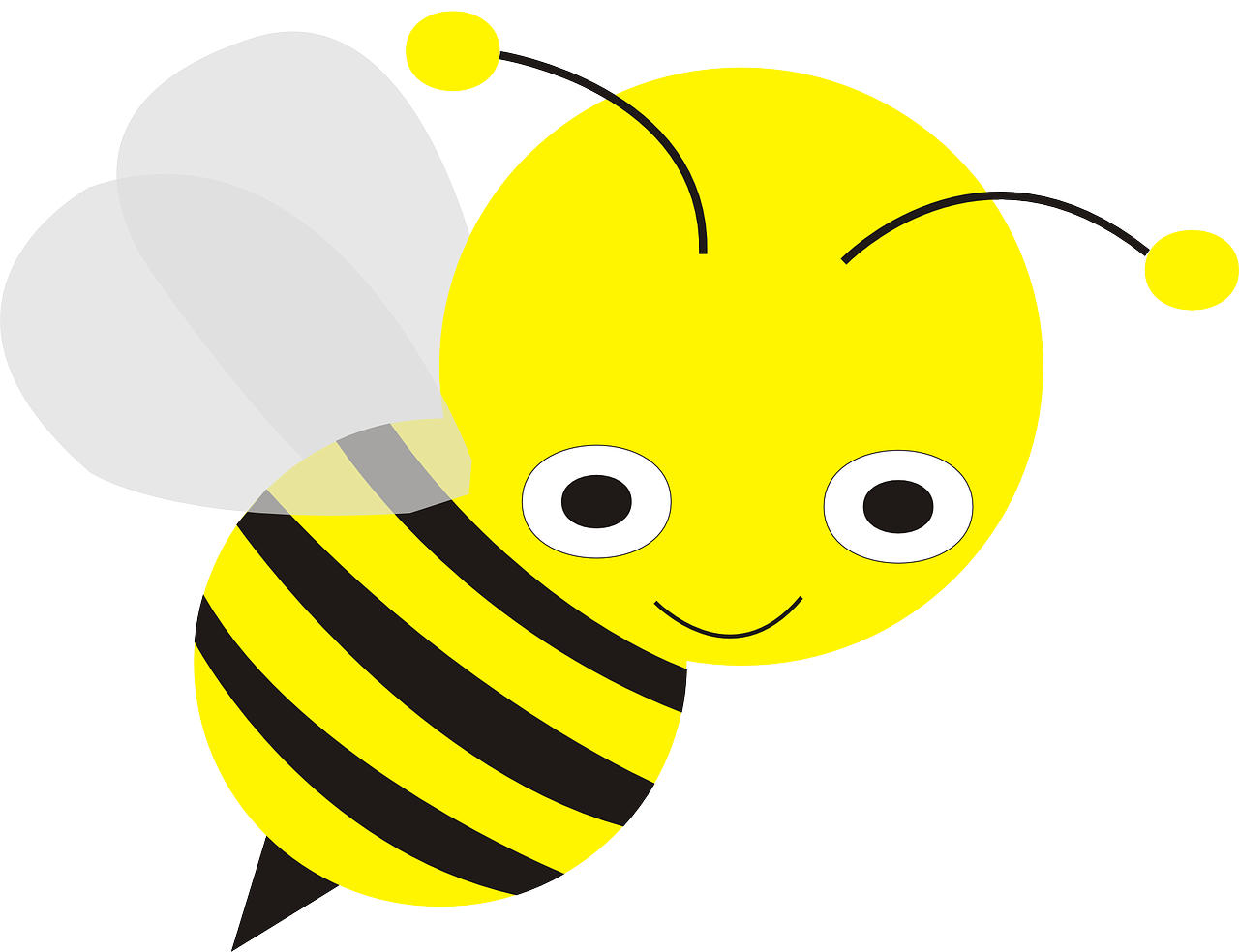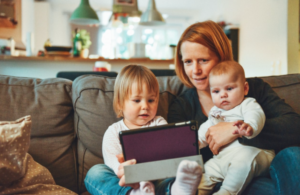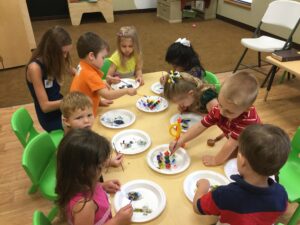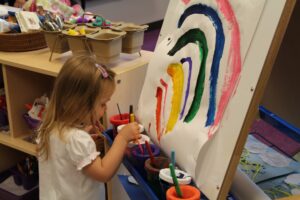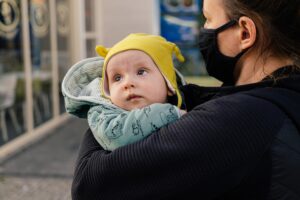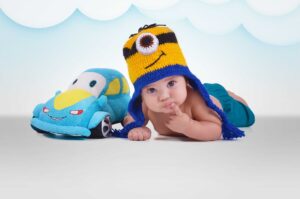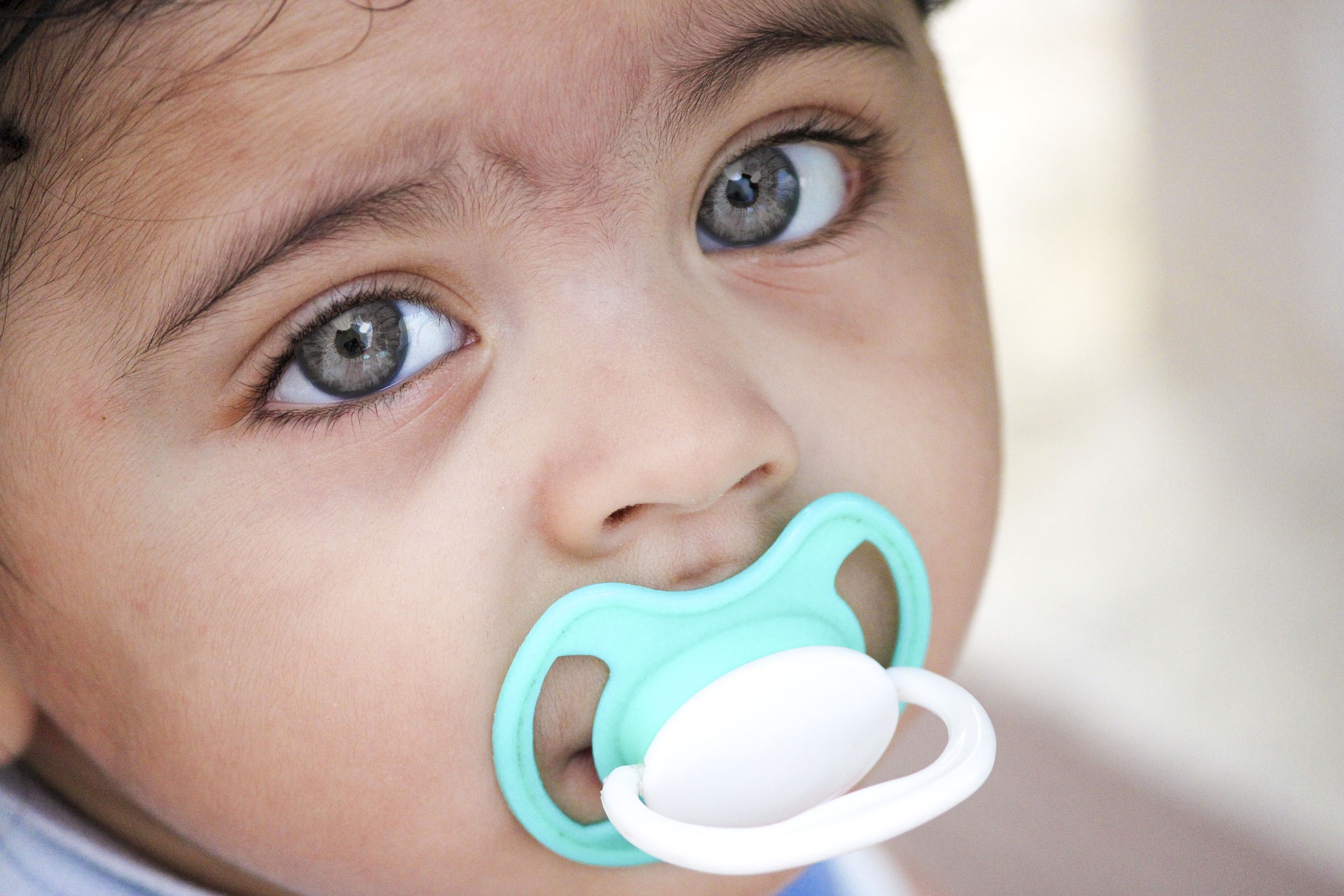
Child Development – Ages and Stages 7 Months – 12 Months. Babies develop at their own pace, so it’s impossible to tell exactly when your child will learn a given skill. The developmental steps listed below will give you a general idea of the changes you can expect, but don’t be alarmed if your own baby’s development takes a slightly different course.
Child development by the end of 7 Months
Social and Emotional
- Enjoys social play
- Watches self in mirror images
- Responds to other adult’s expressions of emotion and appears joyful often
Cognitive
- Finds partially hidden object
- Explores with hands and mouth
- Tries to get objects that are out of reach
Movement
- Rolls front to back and visa versa
- Sits with, and then without, support on hands
- Supports body weight on legs
- Reaches with one hand
- Transfers object from hand to hand
- Uses hand to rake objects
Vision
- Develops full-color vision
- Distance vision matures
- Tracks moving objects improves
Language
- Responds to own name
- Begins to respond to “no”
- Can tell emotions by tone of voice
- Responds to sound by making sounds
- Uses voice to express joy and displeasure
- Babbles chains of sounds
Developmental Health Watch
Alert your child’s doctor or nurse if your child displays any
of the following signs of possible developmental delay for
this age range.
- Seems very stiff, with tight muscles
- Seems very floppy, like a rag doll
- Head still flops back when body is pulled to a sitting position
- Reaches with one hand only
- Refuses to cuddle
- Shows no affection for the person who cares for him or her
- Doesn’t seem to enjoy being around people
- One or both eyes consistently turn in or out
- Persistent tearing, eye drainage, or sensitivity to light
- Does not respond to sounds around him or her
- Has difficulty getting objects to mouth
- Does not turn head to locate sounds by 4 months
- Does not roll over in either direction (front to back or back to front) by 5 months
- Seems impossible to comfort at night after 5 months
- Does not smile on his or her own by 5 months
- Cannot sit with help by 6 months
- Does not laugh or make squealing sounds by 6 months
- Does not actively reach for objects by 6 to 7 months
- Does not follow objects with both eyes at near (1 foot) and far (6 feet) ranges by 7 months
- Does not bear weight on legs by 7 months
- Does not try to attract attention through actions by 7 months
- Does not babble by 8 months
- Shows no interest in games of peek-a-boo by 8 months
Child development by the end of 12 months
Social and Emotional
- Shy or anxious with strangers
- Cries when mother or father leaves
- Enjoys imitating people in his play
- Shows specific preferences for certain people and toys
- Tests parental responses to his actions during feedings
- Tests parental responses to his behavior
- May be fearful in some situations
- Prefers mother and/or regular caregiver over all others
- Repeats sounds or gestures for attention
- Finger-feeds himself
- Extends arm or leg to help when being dressed
Cognitive
- Explores objects in many different ways (shaking, banging, throwing, dropping)
- Finds hidden objects easily
- Looks at correct picture when the image is named
- Imitates gestures
- Begins to use objects correctly (drinking from cup, brushing hair, dialing phone, listening to receiver)
Language
- Pays increasing attention to speech
- Responds to simple verbal requests
- Responds to “no”
- Uses simple gestures, such as shaking head for “no”
- Babbles with inflection (changes in tone)
- Says “dada” and “mama”
- Uses exclamations, such as “Oh-oh!”
- Tries to imitate words
Movement
- Reaches sitting position without assistance
- Crawls forward on belly
- Assumes hands-and-knees position
- Creeps on hands and knees
- Gets from sitting to crawling or prone (lying on stomach) position
- Pulls self up to stand
- Walks holding on to furniture
- Stands momentarily without support
- May walk two or three steps without support
Hand and Finger Skills
- Uses pincer grasp
- Bangs two objects together
- Puts objects into a container
- Takes objects out of a container
- Lets objects go voluntarily
- Pokes with index finger
- Tries to imitate scribbling
Developmental Health Watch
Alert your child’s doctor or nurse if your child displays any
of the following signs of possible developmental delay for
this age range.
- Does not crawl
- Drags one side of the body while crawling (for over one month)
- Cannot stand when supported
- Does not search for objects that are hidden while he or she watches
- Says no single words (“mama” or “dada”)
- Does not learn to use gestures, such as waving or shaking head
- Does not point to objects or pictures
